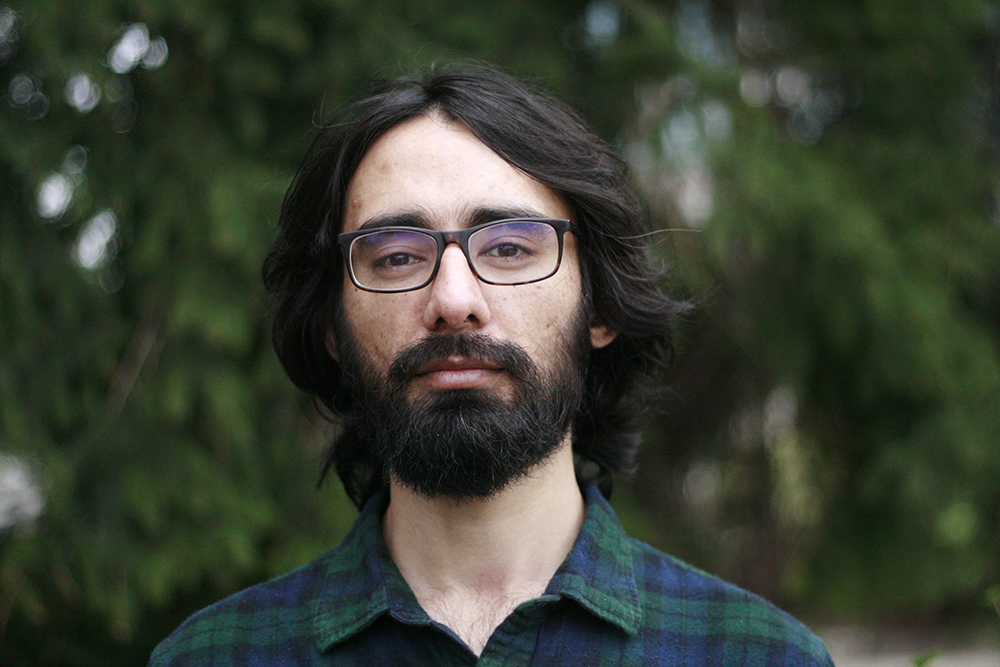 As described by his nominators, Yaseen’s dissertation presents a groundbreaking rethinking of one of the most hotly contested territories today, the Kashmir Valley, a mountainous region at the juncture of India, Pakistan, and China. This area has been historically described as everything from an idyllic paradise to an insurgent space of Muslim militancy.
As described by his nominators, Yaseen’s dissertation presents a groundbreaking rethinking of one of the most hotly contested territories today, the Kashmir Valley, a mountainous region at the juncture of India, Pakistan, and China. This area has been historically described as everything from an idyllic paradise to an insurgent space of Muslim militancy.
Yaseen encourages readers to consider the area in an entirely new way by moving beyond colonial and postcolonial historiographies and employs the framework of an Islamic discursive tradition to study Muslim social and political movements. In doing so, he proposes the concept of an ‘intellectual history from the below’ that moves beyond foundational figures and movements and thinks through the potentials of poetry, biography, and religious newspapers as sources for a complex and nuanced rendering of contentious histories.
“Working with five languages in small vernacular archives in a conflict zone, I consider his dissertation ground-breaking as an intellectual history from below that demands a substantive rethinking of religious political imagination,” said Vazira Fazila-Yacoobali Zamindar, Associate Professor of History.
What is particularly notable about Yaseen’s dissertation is the fieldwork and skills required to obtain the research. His dissertation incorporates an extraordinarily large amount of historiographical and theoretical literature. He visited libraries and personal archives in various countries and analyzed documents written in Kashmiri, Urdu-Hindi, Persian, and Arabic.
He visited archives in New Delhi and London, uncovering local Kashmiri voices on land, language, and religion, among other political questions, through an examination of previously unknown or ignored vernacular sources, including loose-leaf poetic verses, memoirs, local periodicals as well as informal court records of Kashmir held by private individuals or associations.
“The type of archival sifting he has undertaken is invaluable, not just for discussing Kashmir but for the way we correlate between ideas and sociohistorical developments in modern South Asian history in general,” says Shahzad Bashir, Aga Khan Professor of Islamic Humanities.
His archival work has unearthed connections that allow him to present Kashmir as an example of a new way to think about Islam, identity, and politics during a period filled with multiple major transformations.
“It is a remarkable accomplishment in and by itself that Suvaid was able to successfully—and that includes ethically—procure these historical documents and materials so they could enjoy the light of day among historians of Kashmir and the broader region(s) Kashmir occupies,” said Faiz Ahmed, Joukowsky Family Distinguished Associate Professor of Modern Middle Eastern History. "And then there is the equally remarkable story of what Suvaid does with those documents in terms of expert textual analysis, regional connections drawn, and historical contextualization overall."
Based on his dissertation research, Yaseen has published an article “Poetry as history: Maulana Muhammad Anwar Shopiani and the Ahl-i Hadith movement in Kashmir,” in the prestigious Journal of the Royal Asiatic Society.
Yaseen is considering his next steps for publishing his research. “Transforming the dissertation into the book is the next big step. It involves a different kind of intellectual labor than writing a dissertation. I look forward to working through my ideas and writing over the coming years,” he says.
Bashir is in full support of this work, “the book to come out of this dissertation will constitute essential reading for scholars interested in Kashmir, South Asian history, and the phenomenal growth of transnational Islamic networks since the nineteenth century.”
Prior to coming to Brown, Yaseen taught political thought at University of Delhi, and collaborated in interdisciplinary research projects with an array of writers, film-makers and artists. He completed his undergraduate and master’s degrees in Political Science at University of Delhi and an M.Phil. in Political Studies at Jawaharlal Nehru University.
At Brown, Yaseen was very active within the Center for Contemporary South Asia. He led a series of teach-ins on dissent following events in India and hosted a speaker series in collaboration with the Center for Contemporary South Asia with distinguished scholars who were raising questions about how we defined ‘region,’ and disciplinary boundaries. Drawing on his relationships with film-makers and artists, he planned screenings, artist talks and an exhibition, thus widening the scope of the Center’s humanities programming.
He was the recipient of several prestigious awards, including the Mellon/ACLS Dissertation Completion Fellowship, the Andrew W. Mellon Humanities Fellowship (at Brown) and has received research and travel grants from the History Department, the Graduate School, the Center for Contemporary South Asia, and the Graduate Program in Development. He also recently received the Florence Tan Moeson Fellowship for a research stint in Asian Studies at the Library of Congress in Washington DC.
Yaseen is currently a Visiting Lecturer in History at Mount Holyoke College in South Hadley, Massachusetts since defending his dissertation in the late summer of 2022.
“More than an acknowledgement of my work personally, I cherish this award as a recognition of the incredible mentorship and support that I have received at Brown over the years as well as the support of my friends and family,” says Yaseen.